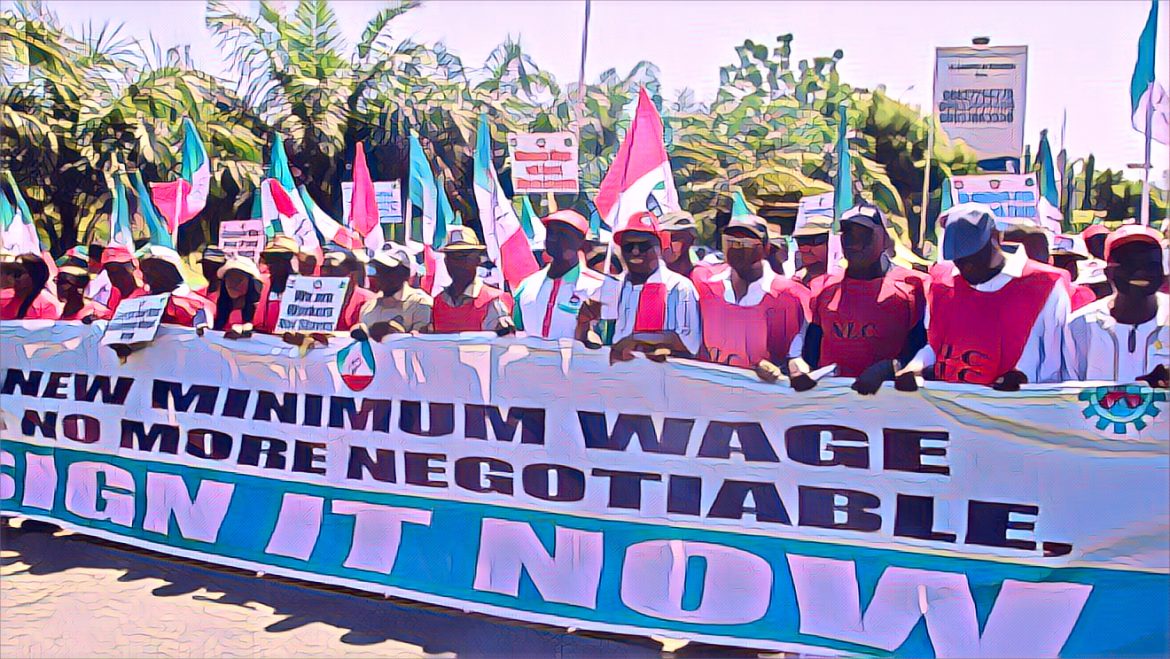Nigeria’s labor unions, the Nigeria Labour Congress (NLC) and the Trade Union Congress (TUC), have reiterated their commitment to a May 31 deadline for the implementation of a new minimum wage. The unions have made it clear that there will be no extension or compromise on this deadline, urging the federal government to act swiftly to meet their demands.
At a joint press conference, NLC President Joe Ajaero and TUC President Festus Osifo emphasized the unions’ unified stance. They warned that failure to implement the new minimum wage by the end of May would result in nationwide industrial action. “We are not going back on our May 31 deadline. The government must fulfill its obligation to Nigerian workers,” Ajaero declared.
The demand for an increased minimum wage comes amid rising inflation and the high cost of living, which have severely impacted the purchasing power of workers across the country. The current minimum wage of N30,000, which was set in 2019, is deemed insufficient by the unions, who argue that it no longer meets the basic needs of Nigerian families.
Osifo stressed that the unions have been patient and engaged in numerous negotiations with the government. However, he noted that the time for action is now. “Our members are struggling to make ends meet. The government must recognize the urgency of this situation and act accordingly,” he stated.
The unions are calling for a significant increase in the minimum wage, although the exact amount has not been disclosed. They argue that a higher wage is essential to improve the standard of living for workers and to stimulate economic growth by increasing consumer spending.
In response to the unions’ ultimatum, the federal government has expressed a willingness to engage in further dialogue. Minister of Labor and Employment, Simon Lalong, acknowledged the concerns of the labor unions and assured them that the government is committed to finding a solution. “We understand the plight of Nigerian workers and are committed to ensuring a fair and livable wage,” Lalong said.
Despite these assurances, the unions remain skeptical, citing past instances where government promises were not fulfilled. They have called on workers to be prepared for possible strikes and protests if the May 31 deadline is not met.
The potential for industrial action has raised concerns among business leaders and economic analysts. They warn that a nationwide strike could disrupt economic activities and exacerbate the challenges facing Nigeria’s economy. However, many also agree that a review of the minimum wage is long overdue and necessary to address the economic hardships faced by workers.
Civil society organizations have voiced support for the unions’ demands, highlighting the need for a comprehensive review of labor policies in Nigeria. They argue that improving workers’ wages is crucial for social stability and economic development.
As the deadline approaches, the spotlight is on the government’s response. The outcome of this standoff will have significant implications for the labor market and the broader economy. The unions’ resolve to stand firm on their deadline reflects the growing frustration among workers and their determination to secure better living conditions.
For many Nigerian workers, the May 31 deadline represents a critical juncture in the fight for fair wages and improved labor conditions. The NLC and TUC’s unwavering stance underscores the urgency of their demands and the pressing need for government action.
Source: Tribune


